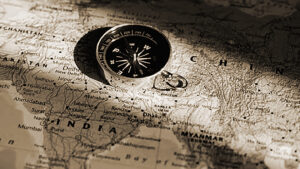
Nadim Siraj
COLUMN/ THE HOT POTATO
November 26, 2020: In 12,000 years of human civilisation, it perhaps stands out as the only instance of a country becoming a household name solely because of the wizardry of a certain football player.
It’s almost as if Argentina was ‘born’ in the year 1986 and lost its ‘creator’ on November 25, 2020. Few phenomena on the planet are as synonymous as Diego Armando Maradona and Argentina are.
The two are so inextricably linked. So bewitchingly intertwined.
Maradona’s demise has snapped that magical umbilical cord. The cord that existentially connected an individual to a nation of millions.
To understand how singlehandedly Maradona embossed Argentina on the world map of human sensitivity and consciousness, one has to only imagine an Argentina without the Maradona phenomenon – a most absurd and impossible exercise in the first place.
How much of the world was aware of Argentina as a land, as a nation-state, before Maradona ‘happened’ to us?
Argentina was truly never a household name. How many people in this world of a several billion knew much about that country?
All that people knew was that it was a developing, struggling nation spanning a large swathe of the South American continent teeming with overambitious military dictators.
All that was known about Argentina was that it was a former Spanish colony – that’s it.
Did people know that there was a time when it was one of the richest countries in the world?
Did people know that a vast majority of the Argentine population are of Italian descent, and not Spanish or Inca?
Did people know that the name Argentina comes from the word ‘silver’?
In fact, before Argentina was ‘socially born’ in 1986 on the simmering trail of Maradona’s bewildering footwork in Mexico, even the 1978 football World Cup victory and the 1982 Falklands War with England were not hugely debated subjects worldwide.
In 1986, when Maradona steered Argentina to World Cup glory, he became a household sensation. And with him, almost like a clone of himself, Argentina entered everyman’s mind space.
For the first time, the country name of ‘Argentina’ was uttered with reverence in the privacy of drawing rooms, over the cacophony of dinner table talk, at playgrounds, clubs, public spaces, and what not.
Post-1986, everyone began to have an opinion on the Falklands War. Everyone could tell the difference between the Argentina flag and the Uruguay one. Such was the cultural impact of one man’s superstardom.
If Maradona’s rise to fame with the World Cup win at Mexico City’s Azteca Stadium was dizzying, then so was Argentina’s elevation from being a little-known Latin American country to the precious, precious land that produced arguably the most celebrated human being on Earth after Albert Einstein.
The Maradona-is-Argentina-and-vice-versa phenomenon didn’t just span his glory days. That there is an Argentina beyond Maradona is, even now and going forward, a matter of doubt as far as popular culture is concerned.
Run a quick test. Ask around who is the current president of the country, or what’s the composition of the current national football team, or who’s the national team coach – and you will invariably find people clueless, trying to Google up the answers.
Maradona has left the hallowed pitch. And it seems he has taken ‘Argentina’ away with him.

Indeed, an imaginative way of understanding the ethereal relationship between Maradona and Argentina – the man and his native land – is a wishful and imagined relationship between a well-meaning ‘empire’ and its people.
The Romans had marketed the Roman Empire to the world – but with all their grim flaws. The Englishmen had marketed the British Empire to all corners of the globe, covering all of the planet’s latitudes and longitudes – but, again, with all their dark flaws.
To look at the Maradona-Argentina relationship through that lens of ‘empirism’ – in a hypothetical way – Maradona was, and posthumously is, that ‘empire’. And Argentina is that empire’s land. No individual has singlehandedly marketed a nation-state so well like he’s done.
But the vital and stark difference with real empires as cited above is: Diego Maradona was and is an empire minus all the hegemonic flaws that empires come with.
He helped Argentina reach the hearts of billions of people, sports fanatics and otherwise.
There were no strings attached in that deal. No hidden agenda. No ulterior motive.
Maradona was, and is, that imaginative empire without any hidden conditions.
Maradona’s ability to triumph against the odds spills over into his relationship with his motherland. It’s as if he took it as a mission to go a few notches higher than what his country’s name means.
If Argentina meant silver, he would bring home way more than that – gold? diamonds? – all that’s too little to measure Maradona’s worth.
As we step into uncharted territory, a world without Maradona, Argentina will perhaps continue to be remembered the way it’s been since 1986: a certain man’s Argentina.
A look at the Argentina map will evoke powerful memories: of that man’s dazzling turn on the football field. The fluttering Argentina flag will be symbolic of just one thing: the blue-and-white striped No. 10 jersey tightly hugging that man’s frame.
Usually, it’s the individual who is indebted to one’s motherland.
With Argentina, it’s the other way round.
REPUBLISHING TERMS:
All rights to this content are reserved. If you want to republish this content in any form, in part or in full, please contact us at writetoempirediaries@gmail.com.











